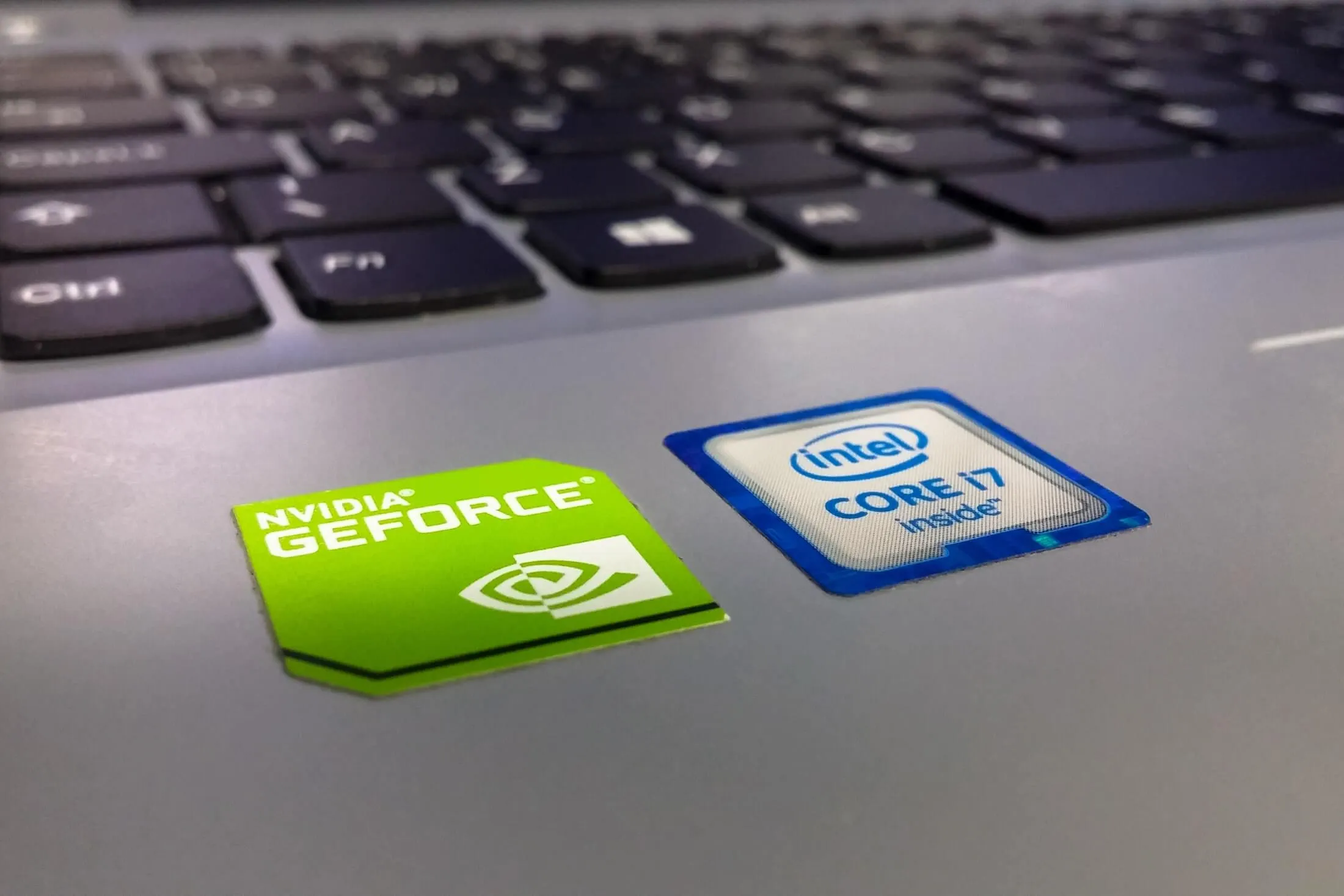Business Technology News Roundup: May 2, 2025
Catch up on the most important US IT news from April 28 to May 2, 2025. Explore major tech policy changes, AI regulation, corporate investments, and key industry developments shaping America’s tech landscape.
The first week of May 2025 saw the US tech landscape undergo significant shifts, with policymakers, corporations, and innovators all making headlines. From sweeping changes in federal artificial intelligence policy to new legislation targeting AI-generated content, last week’s developments signal a new era of accountability and competition in the industry. Major investments in computing infrastructure, regulatory crackdowns on chip exports, and mixed financial results from tech giants further underscore the dynamic and sometimes unpredictable nature of the sector. Here are the five news stories you shouldn’t miss. Let's dive into this week's top stories!
Stories
.webp)
The Trump Administration made waves by releasing two pivotal Office of Management and Budget (OMB) memos-M-25-21 and M-25-22-that will redefine how federal agencies approach artificial intelligence. These memos relax some of the risk management requirements put in place during the Biden era, narrowing the scope of AI systems subject to federal regulation. The new guidelines emphasize a “Buy American” approach to AI procurement, aiming to boost domestic innovation and reduce reliance on foreign technology. While the administration claims these changes will accelerate government adoption of AI, privacy advocates are concerned about the loosening of oversight and the potential for increased surveillance. The coming months will reveal how agencies adapt to these new directives and what impact they’ll have on the broader tech ecosystem.

In a rare show of bipartisan unity, Congress passed the TAKE IT DOWN Act, a landmark bill aimed at combating the proliferation of AI-generated explicit imagery. The legislation introduces criminal penalties for creators and distributors of non-consensual deepfake content and mandates that major online platforms swiftly remove such material upon notification. Proponents argue that the bill fills a critical gap in existing laws, offering new protections for victims of digital exploitation. However, some digital rights groups warn that the act’s broad language could have unintended consequences for free speech and online privacy, especially as platforms ramp up automated content moderation. The bill is expected to be signed into law within days, setting a new standard for how technology companies handle AI-generated abuse.

IBM announced an ambitious $150 billion investment plan targeting US research, development, and manufacturing over the next five years. The initiative focuses heavily on advancing mainframe and quantum computing, as well as scaling up domestic chip production. This move is seen as a direct response to growing competition from Asia and ongoing concerns about supply chain security. IBM’s CEO highlighted the company’s commitment to supporting American jobs, fostering next-generation talent, and ensuring the US remains at the forefront of technological innovation. Industry analysts note that this investment could have a ripple effect, encouraging other tech giants to ramp up their own US-based R&D efforts and potentially reshaping the competitive landscape.

Nvidia, the world’s leading AI chipmaker, faced a challenging week as the US government imposed fresh restrictions on the export of its high-end H20 AI chips to China. The new rules require Nvidia to obtain government approval before shipping these chips, effectively halting billions of dollars in pending orders. Simultaneously, Chinese tech giant Huawei announced the launch of its Ascend 910D chip, a direct competitor to Nvidia’s flagship products. The dual blow sent Nvidia’s stock tumbling and raised fresh concerns about the company’s future growth in the lucrative Chinese market. Nvidia executives have pledged to comply with the new regulations and are exploring alternative markets, but the developments underscore the growing tech rivalry between the US and China.

Last week’s earnings season brought a mix of surprises and disappointments from America’s biggest tech firms. Apple reported sluggish growth in its Services division, missing Wall Street expectations and sparking concerns about the company’s ability to diversify beyond hardware. Amazon, despite posting strong first-quarter results, issued a cautious income forecast that rattled investors. In contrast, Meta Platforms and Microsoft delivered robust earnings, buoyed by continued investments in artificial intelligence and cloud computing. Their positive outlook helped stabilize the broader tech market, with analysts noting renewed enthusiasm for AI-driven business models. As volatility persists, these results highlight the shifting fortunes and intense competition among the industry’s top players.
These five stories capture a week of transformation and tension within the US IT sector, as policymakers, corporations, and innovators grapple with new challenges and opportunities in an ever-evolving digital world.

On April 28, 2025, a massive power outage swept across Spain, Portugal, and parts of southern France, leaving millions without electricity for several hours. The blackout disrupted metro systems, grounded flights in major cities like Madrid and Lisbon, and forced hospitals to rely on emergency generators. Authorities quickly declared states of emergency and mobilized resources to manage the chaos, while critical events such as the Madrid Open tennis tournament were suspended.
Early investigations ruled out cyberattacks or sabotage, pointing instead to a technical failure triggered by a sudden oscillation in the power grid. The problem was exacerbated by the automatic shutdown of numerous solar plants in southwestern Spain, overwhelming the regional grid and causing a cascading failure. The incident has renewed calls for stronger grid interconnections and more robust infrastructure to handle the growing share of renewable energy in Europe’s power mix.
.webp)
The Trump Administration made waves by releasing two pivotal Office of Management and Budget (OMB) memos-M-25-21 and M-25-22-that will redefine how federal agencies approach artificial intelligence. These memos relax some of the risk management requirements put in place during the Biden era, narrowing the scope of AI systems subject to federal regulation. The new guidelines emphasize a “Buy American” approach to AI procurement, aiming to boost domestic innovation and reduce reliance on foreign technology. While the administration claims these changes will accelerate government adoption of AI, privacy advocates are concerned about the loosening of oversight and the potential for increased surveillance. The coming months will reveal how agencies adapt to these new directives and what impact they’ll have on the broader tech ecosystem.

In a rare show of bipartisan unity, Congress passed the TAKE IT DOWN Act, a landmark bill aimed at combating the proliferation of AI-generated explicit imagery. The legislation introduces criminal penalties for creators and distributors of non-consensual deepfake content and mandates that major online platforms swiftly remove such material upon notification. Proponents argue that the bill fills a critical gap in existing laws, offering new protections for victims of digital exploitation. However, some digital rights groups warn that the act’s broad language could have unintended consequences for free speech and online privacy, especially as platforms ramp up automated content moderation. The bill is expected to be signed into law within days, setting a new standard for how technology companies handle AI-generated abuse.

IBM announced an ambitious $150 billion investment plan targeting US research, development, and manufacturing over the next five years. The initiative focuses heavily on advancing mainframe and quantum computing, as well as scaling up domestic chip production. This move is seen as a direct response to growing competition from Asia and ongoing concerns about supply chain security. IBM’s CEO highlighted the company’s commitment to supporting American jobs, fostering next-generation talent, and ensuring the US remains at the forefront of technological innovation. Industry analysts note that this investment could have a ripple effect, encouraging other tech giants to ramp up their own US-based R&D efforts and potentially reshaping the competitive landscape.

Nvidia, the world’s leading AI chipmaker, faced a challenging week as the US government imposed fresh restrictions on the export of its high-end H20 AI chips to China. The new rules require Nvidia to obtain government approval before shipping these chips, effectively halting billions of dollars in pending orders. Simultaneously, Chinese tech giant Huawei announced the launch of its Ascend 910D chip, a direct competitor to Nvidia’s flagship products. The dual blow sent Nvidia’s stock tumbling and raised fresh concerns about the company’s future growth in the lucrative Chinese market. Nvidia executives have pledged to comply with the new regulations and are exploring alternative markets, but the developments underscore the growing tech rivalry between the US and China.

Last week’s earnings season brought a mix of surprises and disappointments from America’s biggest tech firms. Apple reported sluggish growth in its Services division, missing Wall Street expectations and sparking concerns about the company’s ability to diversify beyond hardware. Amazon, despite posting strong first-quarter results, issued a cautious income forecast that rattled investors. In contrast, Meta Platforms and Microsoft delivered robust earnings, buoyed by continued investments in artificial intelligence and cloud computing. Their positive outlook helped stabilize the broader tech market, with analysts noting renewed enthusiasm for AI-driven business models. As volatility persists, these results highlight the shifting fortunes and intense competition among the industry’s top players.
These five stories capture a week of transformation and tension within the US IT sector, as policymakers, corporations, and innovators grapple with new challenges and opportunities in an ever-evolving digital world.

On April 28, 2025, a massive power outage swept across Spain, Portugal, and parts of southern France, leaving millions without electricity for several hours. The blackout disrupted metro systems, grounded flights in major cities like Madrid and Lisbon, and forced hospitals to rely on emergency generators. Authorities quickly declared states of emergency and mobilized resources to manage the chaos, while critical events such as the Madrid Open tennis tournament were suspended.
Early investigations ruled out cyberattacks or sabotage, pointing instead to a technical failure triggered by a sudden oscillation in the power grid. The problem was exacerbated by the automatic shutdown of numerous solar plants in southwestern Spain, overwhelming the regional grid and causing a cascading failure. The incident has renewed calls for stronger grid interconnections and more robust infrastructure to handle the growing share of renewable energy in Europe’s power mix.
Stay connected for next week’s highlights as we continue to track the most impactful stories at the intersection of business and technology.
Stay Connected: Follow NDIT Solutions on LinkedIn, for more insights and updates.
Need Expert IT Guidance? Our team of experienced consultants is here to help your business navigate the complex world of IT. Contact us today at info@nditsolutions.com or call 877-613-8787 to learn how we can support your technology needs.
See you next week for another round of essential IT news!

.webp)






